Mr. Fish’s New Year’s Dissolution
I was 14 years old and it was just after dinner on the last day of summer vacation in the Alabama portion of Southern Jersey, where the only black people I ever saw were sunburned Italians.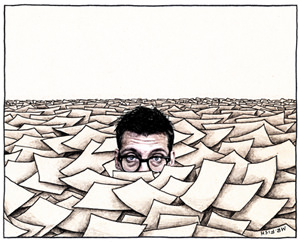
I was 14 years old and it was just after dinner on the last day of summer vacation in the Alabama portion of Southern Jersey, where the only black people I ever saw were sunburned Italians. This was in 1980, just a few months before the gruesome murder of John Lennon and the even more gruesome election of Ronald Raygun into the White House, neither tragedy I’ve ever completely recovered from, and my mood was rapidly filling with a dread like wet cement as I looked to the horizon, which was just beginning to blaze with the electric sherbet of an early September sunset.
With the first day of school sitting like a thug on the other side of sundown, thumping its great club of institutionalized disapproval of all that I ever hoped to become against its very dull palm, I was determined to yank my bike from the loud gewgaws crammed inside the garage for one last ride through the woods to the Ocean Acres Lake. There I planned on stripping down to my underwear and, for one last time before homework and curfew turned me into something so much less spectacular, to catapult myself from my bicycle seat and charge through the mosquitoes and the weeds and plunge myself into the piss-brown water and press myself down into the cool slime of the lake bed, one of the larger rocks rolled over onto my belly, and to lay there in my diving mask and snorkel and watch the nighttime come from three feet underwater. The snorkel had been made using three separate snorkels, one roll of black electrical tape and a small piece of dirty Styrofoam that acted as the cartilage that kept the nostril of the whole contraption set firmly against the breeze above the water. Sucking on the sky as if it were an impossibly huge bong containing all the magnificent lies that made a 14-year-old boy feel as if he were no more accountable to the treachery of things than a piece of cherry smoke, I would lounge beneath the water near enough to napping to savor complete relaxation without sleeping through it, a living angel hovering weightless inside an atmosphere of water and peering down upon heaven, pitying the souls there for not knowing the bliss of living inside meat so moved by both the buoyancy and confinement of flesh.
The best afternoons contained thunderstorms. Tucked safely enough below the horizon of the lake for the lightning to require hours of digging with a bucket to find me, I’d experience what every great composer must’ve been searching for in the composition of his symphonies yet was never able to capture, largely because of the crappy visuals that polite society demanded that he use when communicating his music — namely, the image of one man waving a stick around above the heads of a large group of other men, and eventually some women, all of them dressed as an immense waitstaff. Occasionally there was permitted the added visual of actors behaving flamboyantly inside the magnification of jewel-encrusted opera glasses; however, small improvement, particularly when the actors seldom even sang, much less spoke, in the language or century of their audience.
My symphonies, on the other hand, were automatically relevant and always began with a sky swelling dramatically into a fantastic bruise, heavy with the telepathy of a God weary of his own sweet understanding of everything and wishing that he could know less and explode into sand like a mountain aching to be touched by the bare feet of his own estranged children. This effect was followed by dainty water rings piccoloing in a flurry of O’s as lightly as tiny bells and leading ultimately to the sort of crescendo that one might imagine the conception of the universe must’ve looked like: static full of flashes of fire, physics in the throes of intercourse, nudity capable of no further lewdness, a nakedness stripped to the atomic level. It was a violence that poked such excitement into my soul that once it ended there was always the sensation that I’d been emptied, that my spirit had been pulled out of me, leaving me to gather, like collecting coins from a dark theater’s floor, memories of what my prior spirituality must’ve been, its value invisible to me. Twenty minutes after every storm I would emerge from the water feeling incomplete, like a loose confederacy of dishonest recollections, or at least a ghost that had been stitched together so weakly that my very will to be seemed in danger of fragmenting inside the vibration of my own footfalls as I pushed my bike through the steamy air back to the garage, the chemistry of my insides stirred hard into a swirling cloud of undrinkable water.
Moving through such predictable stages of alarm, elation and acquiescence eventually became for me how I came to experience the approach and passage of each New Year as a political cartoonist. The sequence of events was always the same. I’d suddenly wake up sometime during the week between Christmas and New Year’s Day in an absolute panic, fearful that I hadn’t yet created a piece of art that adequately recapped the bureaucratic failings of the previous 12 months. And although it was so obviously contrived, this public recapitulation of the recent past so cleanly bookended between Januaries — and although such a display had much more to do with the slovenly habit of the greater culture to reflect upon itself only annually rather than daily — I still felt obliged to add my voice to the mass assessment, knowing that minimal participation in a society’s traditions, however lame-ass, was polite and well-mannered and the sort of behavior that helped sustain my professional credibility and kept my seat warm at the communal dinner table upon which all the members of the press and artistic communities feasted on the hyperbolic stew of one another’s company.
After the fear that I would never be able to encapsulate all the petty and predictable bullshit of the previous year and to inflate its importance and reconfigure its purpose into something profound and instructive, I would typically end up submerging myself in the absolute satisfaction that comes with not cartooning at all. So, in late December of every year I would lower myself, underpants and all, into the quiet lake of inactivity and steel myself against drowning. I would pull the plug on my critical thinking and disconnect my ears and my voice box and remove my brain and set it on the table in front of me like a cruddy little engine in need of cooling and cleaning and walk away. “Silence is the universal refuge,” Thoreau said, “the sequel to all dull discourses and all foolish acts.” Rumi, at least according to his leading translators, capitalized the word silence as if it were holy: “In Silence there is eloquence. Stop weaving and see how the pattern improves.” Silence was all too often misconstrued to be emptiness, usually by those equally as likely to wave their spastic hands through a flashlight beam and to insist that there was nothing there. Not me.
In many ways, I found that by removing my voice from all conversation about the world I was finally able to recognize, with great humility, that the world was not enhanced by my excessively verbal participation in it, but rather I was enhanced by the world whose inarticulate physics were precisely what gave me license to participate in the machinery of my very existence. In my silence I felt not unlike the word fuck and that, in the face of reality’s illiteracy, I was suddenly permitted the grace of getting to exist merely as typeface against pulp, my obscenity made completely irrelevant by the indifference of the corporeal world toward the King’s English. In an instant, I felt as if I could mean so much more by meaning so much less than the bogus definition previously attached to me by the capricious folly of language. Like an emancipated slave allowed to suddenly become invisible inside a free society, I could finally experience the thrill of watching life proceed without the disruptive influence of my presence. By no longer adding my own voice to the ceaseless blathering that constituted the cacophonous schizophrenia that was the public consciousness, I could finally feel as if I were communing with the wordless truth that lay beyond human comprehension like edifying bones beneath flesh.
Then the muscle memory in my pleasure center would begin to reminisce and I would be reminded of the woe that I felt slam into my 14-year-old chest upon bursting through the bright menthol of pine trees on my bicycle at the edge of the lake in 1980 — the vertical stack of fluorescent cones like dunce caps, the great coils of chain-link fence, the Private Property signs stapled to the white strings strung low between wooden stakes — and I would dutifully extricate my drowsy self from what felt like the meaning of life so that I could cheapen my understanding of existence by commenting on it, using pictures and a ravenous alphabet that I’d unleash like shrapnel upon an apathetic universe that was so hysterically incapable of moaning or assigning blame or coming to my defense.
After all, I figured, unless I made a few bucks, I’d never amount to anything.
Your support matters…Independent journalism is under threat and overshadowed by heavily funded mainstream media.
You can help level the playing field. Become a member.
Your tax-deductible contribution keeps us digging beneath the headlines to give you thought-provoking, investigative reporting and analysis that unearths what's really happening- without compromise.
Give today to support our courageous, independent journalists.
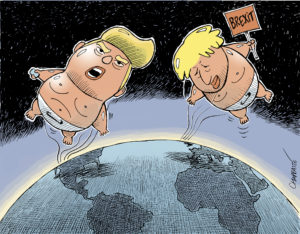
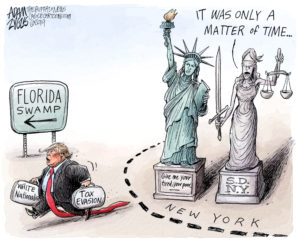
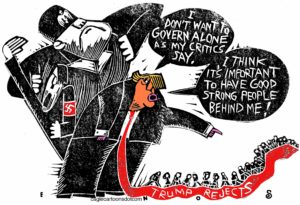
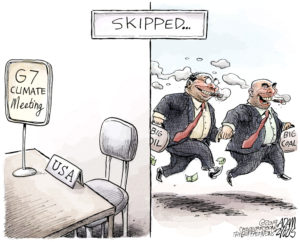
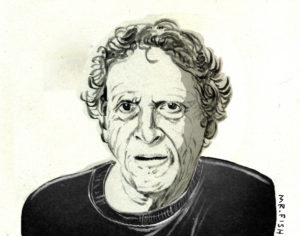

You need to be a supporter to comment.
There are currently no responses to this article.
Be the first to respond.